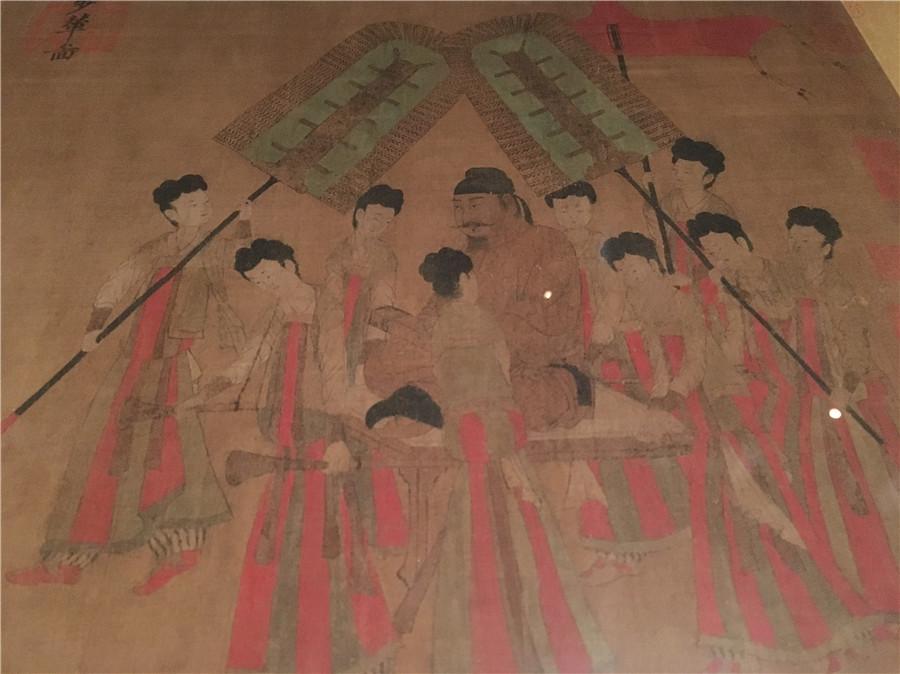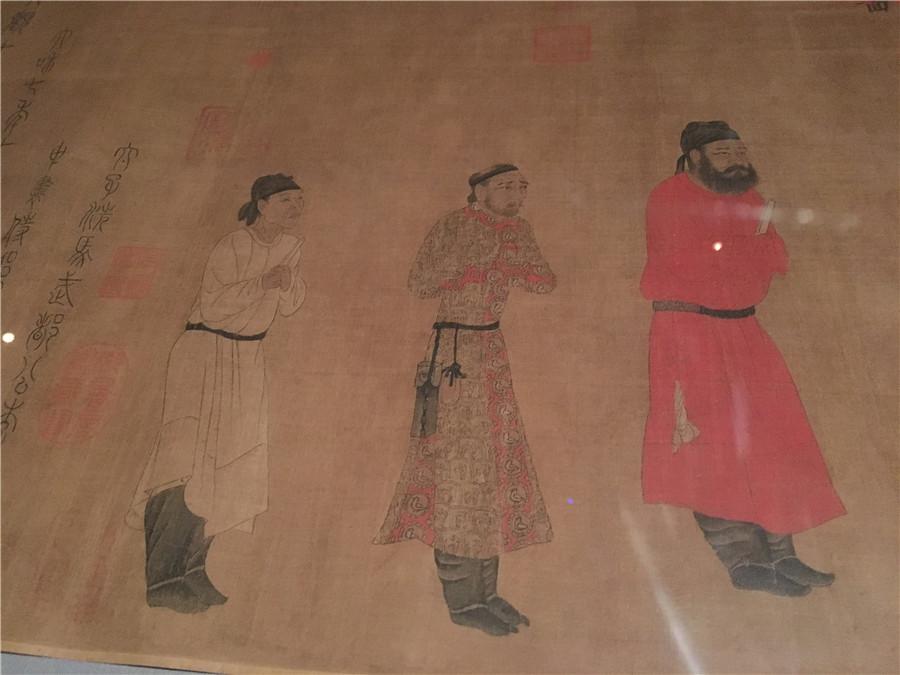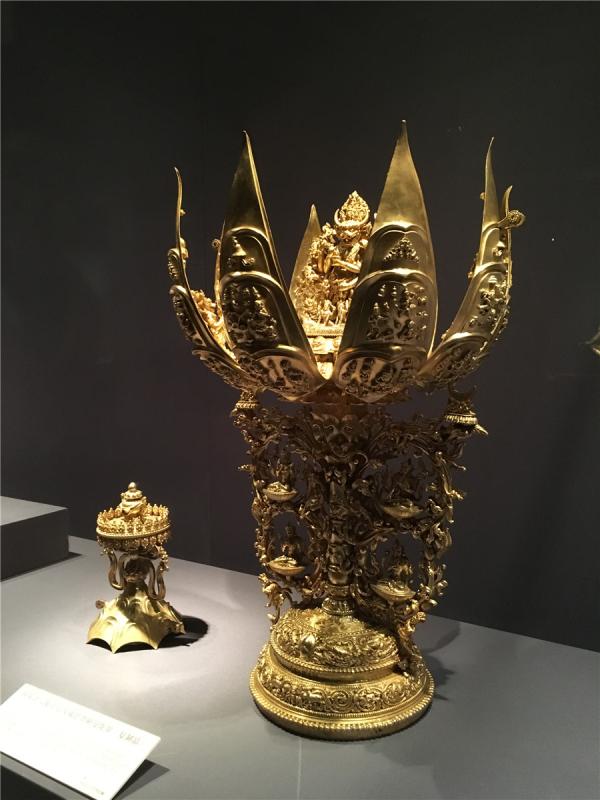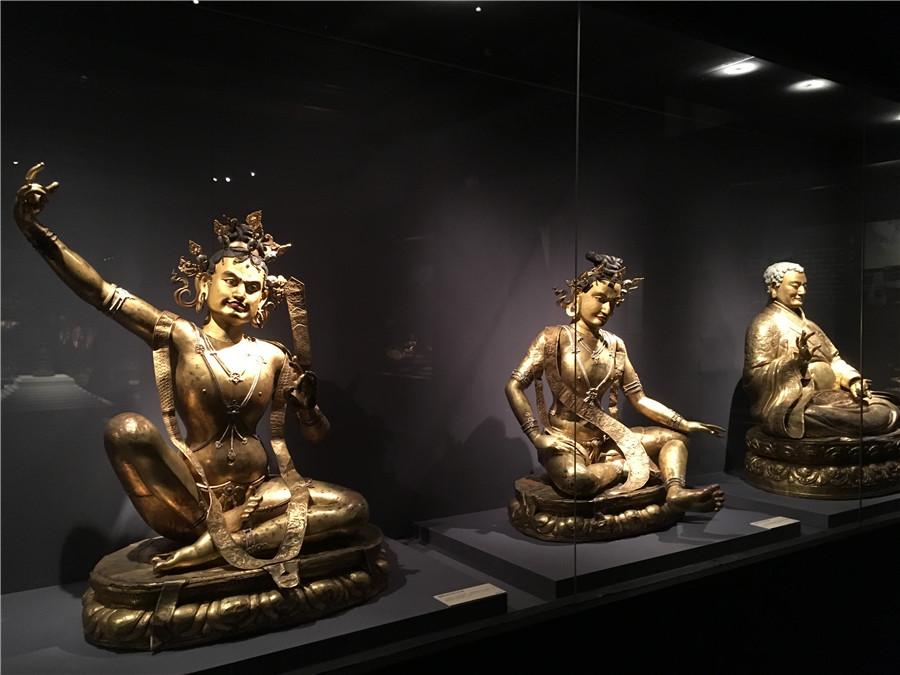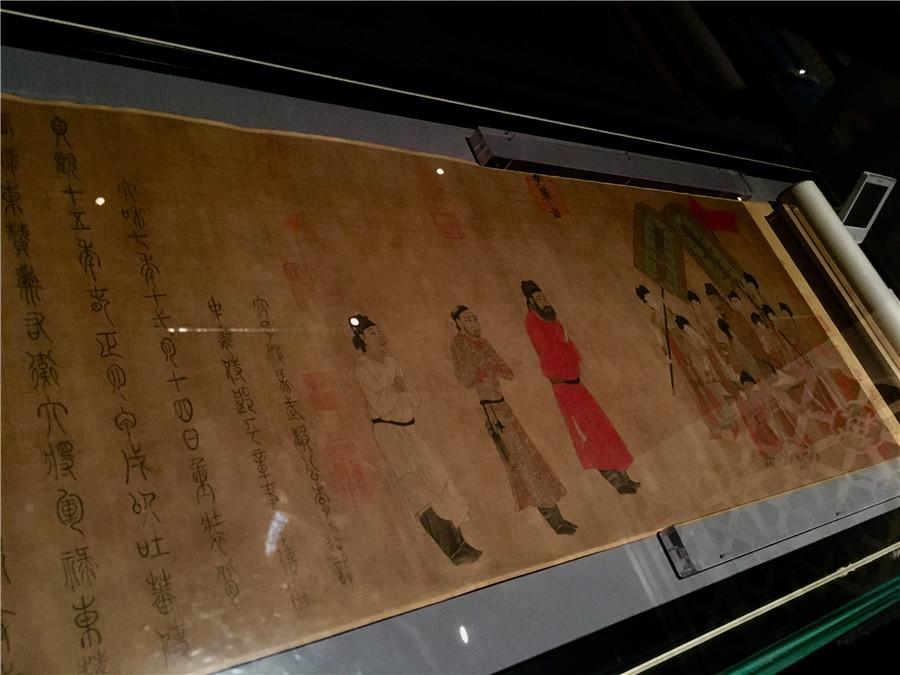
Bunian Tu, one of China's most celebrated surviving ancient painting, is on display at the Capital Museum in Beijing, Feb. 27.
The rarely seen Bunian Tu, one of China's most celebrated surviving ancient painting, went on display on Tuesday in the Capital Museum in Beijing and will be exhibited there for two months.
The 1.3-meter-long scroll painting, also known as Emperor Taizong Receiving the Tibetan Envoy, is generally believed to be painted by Tang Dynasty (618-907) artist Yan Liben, but it is also speculated to be a facsimile from Northern Song Dynasty (960-1127) of Yan’s original work.
The work, now part of Beijing's Palace Museum collection, records the close connection between Tang Dynasty and Tibet.
The masterpiece is among the 200-odd items at the ongoing exhibition in the Capital Museum - Tibetan History and Culture - that gives a panoramic view of the region’s religion, early history, crucial status on ancient trade routes, and many other fields.
Many exhibits are borrowed from key temples and religious sites, like Jokhang Temple and Potala Palace in Lhasa, in the Tibet autonomous region.
Jokhang Temple was hit by fire on Feb. 17,but the fire was soon put down, and no cultural relics were damaged.
The exhibition in Beijing is to run through July.






